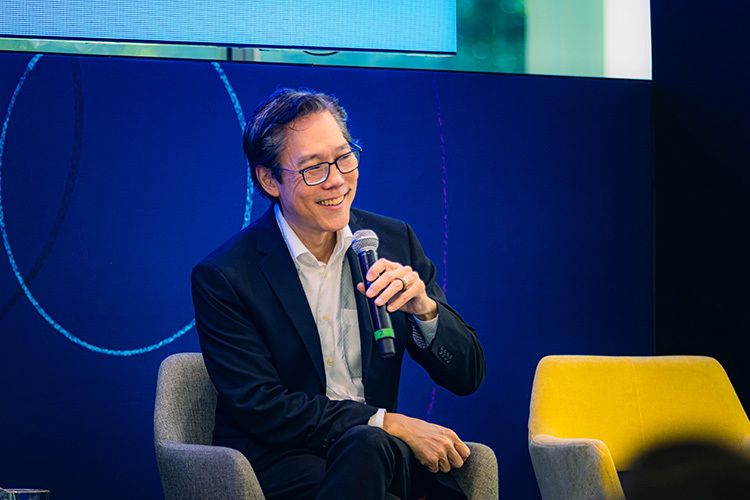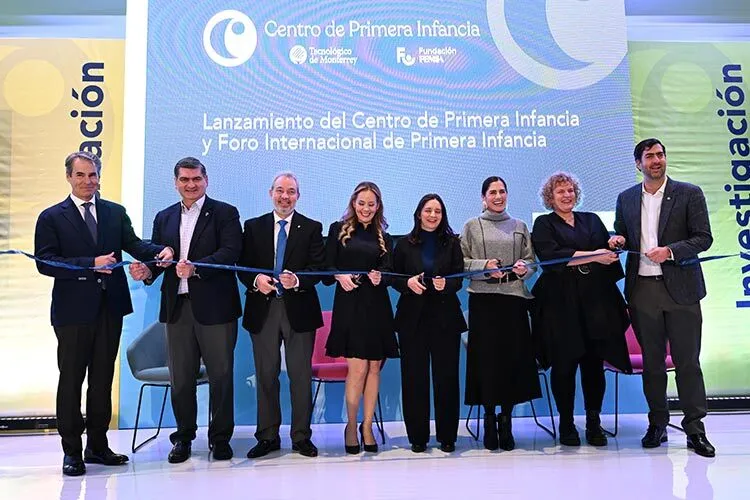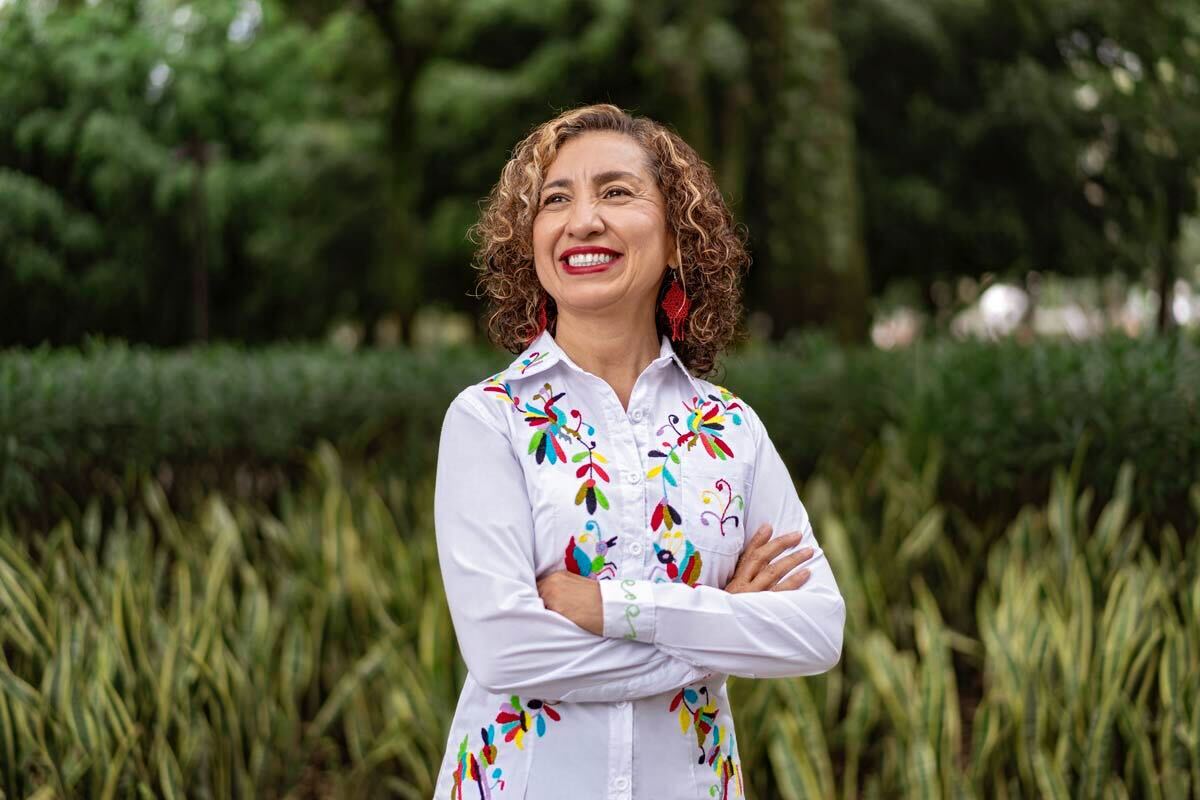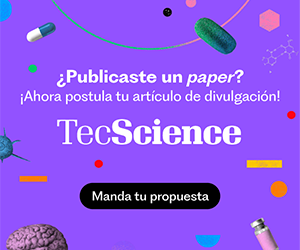At a meeting of the Board of Directors of the Institute for Education Sciences in the United States, the topic was why research aimed at improving learning has not been widely applied in public policy, except in a few cases. For Hirokazu Yoshikawa, a professor at New York University and co-director of the Global TIES for Children Center, this is a problem that spans many sectors.
In an interview with TecScience, Yoshikawa explained that creating evidence-based public policies requires first understanding how community programs and services for child development operate.
“You have to understand what programs look like. You have to visit many, many programs and talk with families, with parents, with children, with service providers, teachers, health workers, and social protection workers to understand what it is that children experience and what it is that their parents experience in service systems that serve them,” said the professor, who was also one of the panelists at the Second International Early Childhood Forum.
Yoshikawa explained that policymakers are typically not well-trained in early childhood development. “I think scientific evidence is needed to help craft what the policy options are for policymakers for investments, whether they are local investments or state investments or federal investments.”
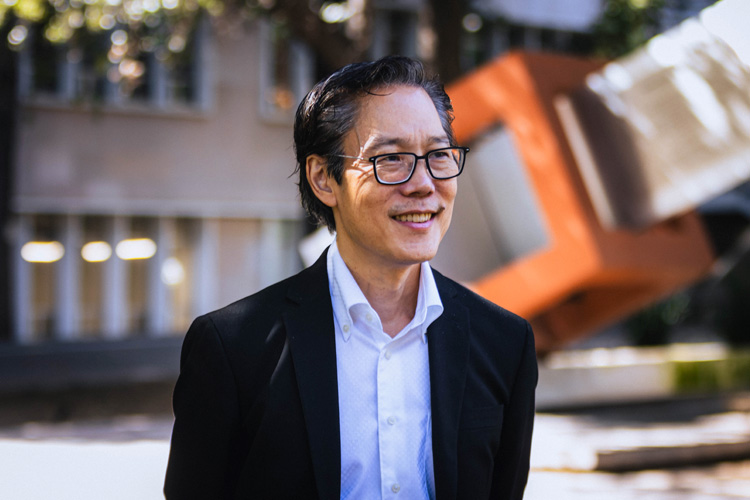
Evidence-Based Public Policy
The professor emphasized the importance of understanding how policymakers think and make decisions, which are often driven by political pressures and financial constraints.
Yoshikawa argued that researchers need to be flexible and recognize that not everyone is open to the role of research in child development. As a result, they should focus on engaging with those who are receptive and initiate conversations to understand their concerns better.
He pointed out that policy formulation happens within small networks of individuals in positions of influence, shaped by sociopolitical and ideological changes. He was influenced by social movements and cultural, political, and financial factors.
“If there are no sustained, reciprocal relationships between researchers and policymakers, research often plays almost no role in decision-making,” he said.
To build these types of relationships, several key factors must be met:
- Sustained reciprocal alliances with networks of policymakers.
- Responding to the questions of policymakers.
- Collaborating with political actors who are open to considering research.
- Connections with networks of former policymakers, not just current ones, including those from government, civil society organizations, and universities.
- Persistence in keeping research evidence on the policy agenda across multiple administrations.
- Ongoing contacts to wait for moments of political opportunity.
- Attention should be paid to the language of legislation and to enduring or permanent funding mechanisms that can transcend multiple political administrations.
Success Stories
In his presentation, the professor also shared success stories driven by the Global TIES for Children Center to promote early childhood development in countries like Iraq, Colombia, the United States, and El Salvador in partnership with organizations, universities, and local and federal governments.
For instance, one program focused on increasing the use of research in formulating U.S. federal policies, which resulted in a 23% increase in Congressional offices citing research in bills related to children and families.
Another example was a remote early learning project for Syrian refugee children in rural and remote areas of Lebanon, delivered through WhatsApp. The program featured trained teachers working in small groups of five children, each receiving backpacks filled with learning materials.
Yoshikawa noted that this program demonstrated strong potential for child development in contexts of migration and humanitarian crises.
The Second International Early Childhood Forum
The Early Childhood Center at Tec de Monterrey and the FEMSA Foundation hosted the second edition of this international forum, which focused on the impact of adversity during the early years of life.
“It’s a human condition with multiple factors; we are trying to find solutions and, innovatively, propose ways to cope with it, resolve it, and, above all, support our children on their path toward a better future,” said Manuel Pérez, director of the center.
In addition to Yoshikawa, the forum featured international early childhood experts, including Patt Levitt, director of The Saban Research Institute and professor at the University of Southern California, and Philip Fisher, director of the Stanford Center on Early Childhood and professor at Stanford University.
Early childhood refers to the first eight years of life, a period that is crucial for the healthy and full development of human beings.
Were you interested in this story? Do you want to publish it? Contact our content editor to learn more about marianaleonm@tec.mx
